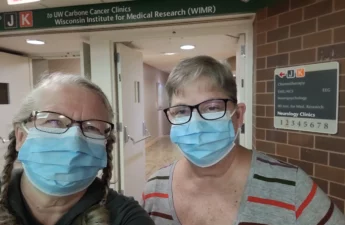Category: Rural Health
Rural Pharmacies Are Transforming to Take on More Healthcare Responsibilities
As hospitals in rural communities close, pharmacists are changing their workflow and business models to focus on providing more services.
Social factors help explain worse cardiovascular health among adults in rural vs. urban communities
Researchers found that factors such as levels of income and education, having enough food to eat, and owning a home mostly explained the higher rates of people in rural areas who had high blood pressure, diabetes, and heart disease.
Doctor shortages have hobbled health care for decades − and the trend could be worsening
For decades, experts have warned of an impending decline in the physician workforce. Now, Americans across all regions, specialties and socioeconomic backgrounds are experiencing that decline firsthand or personally.
Retired Doctors Step Up in the Face of a Rural Health Care Crisis
By Pat Raia, The Daily Yonder March 11, 2025 Four years ago, family practitioner Dr. Jeff Chappell retired from his post as medical director of the Wayne Community Health Center in Bicknell, Utah. He was excited to undertake a new…
GOP Takes Aim at Medicaid, Putting Enrollees and Providers at Risk
At stake is coverage for roughly 79 million people enrolled in Medicaid and its related Children’s Health Insurance Program. So, too, is the financial health of thousands of hospitals and community health centers — and a huge revenue source to all states.
Study: Obstetrics Units in Rural Communities Declining
According to the researchers, the decline of obstetrics units in rural communities is contributing to rising maternal morbidity rates.
Economists: Rural Uninsured Rates Likely to Rise if ACA Premium Tax Credits Expire
For residents in rural communities across the country, those rising prices could mean not having access to health insurance anymore.
For Many Rural Women, Finding Maternity Care Outweighs Concerns About Abortion Access
A study that examined nearly 5,000 acute care hospitals found that by 2022, 52% of rural hospitals lacked obstetrics care after more than a decade of unit closures. The health implications of those closures for young women, the population most likely to need pregnancy care, and their babies can be significant. Research has shown that added distance between a patient and obstetric care increases the likelihood the baby will be admitted to a neonatal intensive care unit, or NICU.
Study: Rural residents more likely to struggle with medical debt
The researchers found that 11.5 percent of white rural residents said they had problems paying medical bills, and 7.6 percent were unable to pay them.
45 Degrees North: The Rural Cancer Commute
If you come from a rural area, you probably know someone who has had to make that kind of commute for treatment. Who has weighed the cost of gas, food and lodging away from home. Who has learned the back ways around a strange city to avoid road construction or rush hour congestion. Who packed an extra week’s worth of clothes, just in case.
‘Dismayed, but Not Surprised:’ Health Gap Between Urban and Rural America Is on the Rise
The dwindling of rural communities is a reality reflected across rural America, and it doesn’t bode well for the health of the residents of those communities: likely even poorer access to health care and all manner of services and amenities. Or for that of the community as a body: less voice in decisions made at the state and federal levels.
Report: Rural Women See Drops in Health and Reproductive Care
Differences in Medicaid coverage – whether it is in the 10 states that have yet to expand Medicaid, or the unwinding of Covid-19-based Medicaid coverage – has left millions of women either uninsured or with gaps in their health care coverage.
Small-Town Patients Face Big Hurdles as Rural Hospitals Cut Cancer Care
For rural patients, getting cancer treatment close to home has always been difficult. But in recent years, chemotherapy deserts have expanded across the United States, with 382 rural hospitals halting services from 2014 to 2022.
Rural Health Clinics with ‘Head-to-Toe and Womb-to-Tomb’ Care
Rural health clinics are safety net providers whose original mandate was primarily to increase access to care for those on Medicaid or Medicare. They provided primary care and perhaps a few other services. But the Rural Health Clinic program has evolved over the years, and some clinics, like Primary Care Centers of Eastern Kentucky, have expanded their roles quite considerably.
‘Grotesque Catch-22’ – Sickest Rural Adults Are the Least Likely to Be Able to Pay for Healthcare
Research on cost barriers to health care found that rural adults were more likely than urban adults to report being unable to pay their medical bills or have problems paying their medical bills. Rural adults also were more likely to use medications in ways not prescribed (like taking pills every other day or only filling prescriptions every other month) to save money on medication.













